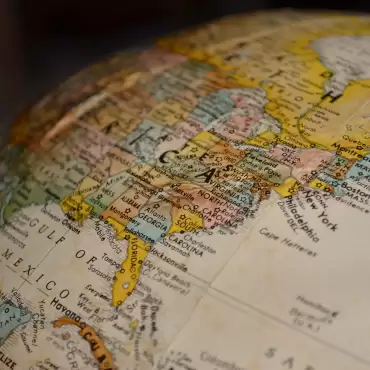A DC councilman, Kenyan McDuffie, has filed a bill that would allow for an open, competitive market in the nation's capital, where consumers currently have only a single choice for online sports betting.
The bill would create a new Class C licence, under which operators could offer online sports betting citywide.
Currently, the only platform available throughout the district is GambetDC, which has been under fire almost since it was launched. Operated by Intralot on behalf of the Office of Lottery and Gaming (OLG), the platform has a reputation for uncompetitive odds, limited markets and difficult usability.
It is common knowledge among stakeholders that consumers cross the border to Maryland and Virginia – both of which offer at least 10 online sportsbooks – for a bigger selection. BetMGM and Caesars Sportsbook also offer digital sports betting in the district, but are limited to doing so at their partners’ sports stadiums and within a two-block radius.
GambetDC has brought in $4.3m in tax revenue to the district since its May 2020 launch, despite studies ahead of launch showing that it could bring in as much as $84m. For comparison, according to the Sports Handle revenue, handle, and tax database, Delaware, which also has a single operator, has raised $65.5m in tax revenue since launching in June 2018.
New Hampshire, another monopoly state, has reaped $101.8m in tax dollars since a December 2019 launch.
Dating back to 2019 when the DC Council legalised online sports betting, McDuffie has been a proponent of a more competitive market. At that time, the OLG and the DC Council agreed to allow lottery vendor Intralot to expand its contract and offer sports betting, giving it a virtual monopoly.
Why did OLG wait so long for change?
Intralot’s sports betting contract is set to expire this summer and, in January, lottery chief Frank Suarez shared with the DC Council during a roundtable discussion that Intralot had proposed subcontracting the digital sports betting platform. In early March, OLG sent the DC Council a letter saying that it had approved Intralot’s proposal to replace GambetDC with a platform run by FanDuel.
At that January roundtable, McDuffie questioned the timing of the announcement.
“With approximately six months left on the contract, you figured out a better way to do things?” McDuffie asked Suarez during the roundtable. “And we should just trust that you’ve got it figured out? I’m incredulous.”
FanDuel will also take over OLG’s current operating costs related to sports betting, allowing more revenue to enter the city’s general fund. These costs run from $2 million to $4 million yearly, according to https://t.co/znuy5j7Pds. https://t.co/tKQ01UeC2G
— The Washington Times (@WashTimes) March 14, 2024
McDuffie’s new bill comes as no surprise. It was filed on 20 March and his staff says it will be introduced on 22 March.
Besides creating a new class of licences, the bill would require operators currently partnered with sports franchises or venues to apply for a new licence in order to offer betting across the district. This would affect BetMGM (Washington Nationals/Nationals Park), Caesars Sportsbook (Washington Wizards/Capital One Arena), and FanDuel (DC United/Audi Field).
BetMGM and Caesars currently offer digital sports betting at the sports venues and within a two-block zone and each has a brick-and-mortar sportsbook. Under the new bill, there would be no geofencing around the sports venues, but the geofencing around federal lands across the city would remain in place.
New online sports betting licence application fee $2m
The new Class C licence would come with a $2m application fee, good for five years. Licences could be renewed for five years at a $1m fee. The tax for digital sports betting would be 30%, if there is no cap on the number of Class C licences, or “through contract with a limited number of partners operating an Office of Lottery and Gaming mobile and web-based sports wagering operation, whichever can be shown to return the most revenue to the District of Columbia”.
Player spending on sports betting in Washington DC fell again in December but revenue was up year-on-year and month-on-month https://t.co/jYclz5WPSv pic.twitter.com/4vezq48TZE
— iGB (@iGamingBusiness) January 24, 2024
McDuffie is also looking at reinstating funds for problem and responsible gambling funds. Last summer, DC’s mayor, Muriel Bowser, removed a $200,000 allocation to the Department of Behavior Health (DBH) from the city’s budget, after the agency failed to spend the funds.
In the new proposal, “the first $300,000 of revenue” would be funneled to the DBH for problem and responsible gambling initiatives. The next $1m would go to the Washington Convention Center and Sports Authority to be used for “out-of-school time” sports and extracurricular activities for public-school students.




